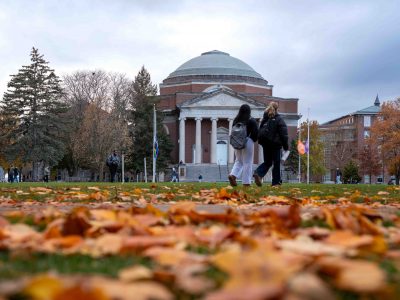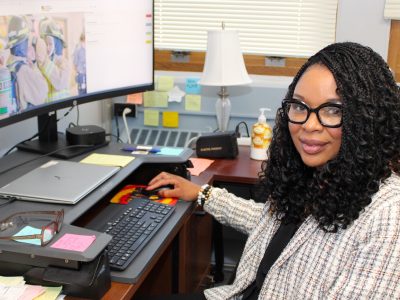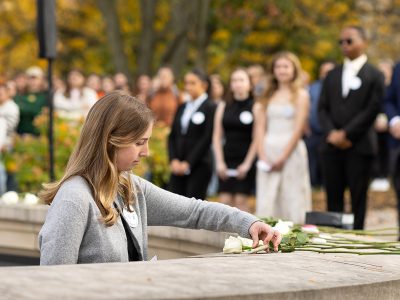Postdoctoral Scholars Play a Unique and Valuable Role at the University
Postdoctoral scholars are unique campus community members in an uncommon space. They are continual learners, but they’re far from being students. As full-time researchers, they work in many different academic disciplines, hoping to produce new knowledge alongside faculty mentors, laboratory partners and students. Many teach courses and provide mentorship. They expand their own expertise while making valuable contributions to the University’s research and creative enterprise.
Currently, there are almost 80 postdoctoral scholars in 26 different programs and departments at the University.
A Valued Presence
Peter Vanable, dean of the Graduate School, says postdoctoral scholars are an integral part of the University community. “Along with excellent research contributions, they help to mentor our Ph.D. students and bring diverse backgrounds, varied career perspectives and added expertise to the research enterprise. We value their presence and their contributions, and we are pleased to support them however possible.”
Vice President for Research Duncan Brown agrees. “Postdoctoral scholars are essential to the University’s research and creative activities. They contribute to the research program of their faculty advisors through their own research accomplishments and their interactions with our students. Their work enriches the environment of their research groups while they build their own skills through mentoring and collaboration,” he says.
The Office of Postdoctoral Affairs, administered by the Office of Research in partnership with the Graduate School, serves as a centralized campus resource dedicated to the interests and well-being of full-time postdoctoral researchers. The office, established last fall, offers onboarding and orientation, mentoring connections, networking opportunities and professional skill development, among other resources. Additionally, lunch-and-learn workshops are held every other Wednesday from noon to 1:30 p.m. at 227 Lyman Hall.
Postdoctoral Experiences
Seonhwa Lee wanted to expand her focus on family dynamics and aging. She is affiliated with the Aging Studies Institute, a collaborative initiative of the Maxwell School of Citizenship and Public Affairs and the David B. Falk College of Sport and Human Dynamics, where she works with Merril Silverstein, Marjorie Cantor professor of aging studies.
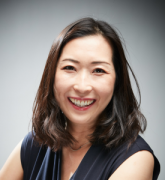
“What I appreciate most is the institute’s vibrant research atmosphere. Faculty members and students actively engage in exploring compelling studies, and the open exchange of ideas, questions and constructive feedback nurtures intellectual curiosity and creates a collaborative space advancing research projects. This collaborative research atmosphere stands out as a key highlight of my experience at Syracuse,” Lee says.
Lee’s research examines how family traditions of strong religious belief and generosity in helping others contribute to intergenerational solidarity and positive aging and health. She looks at the relationships between parents and children and grandparents and grandchildren and how the role parents and grandparents play impacts the views of Generation Z populations. Her research shows that promoting religious belief as a family value draws family members emotionally closer, and that promoting prosocial values creates a greater sense of responsibility to provide care and support to older family members.
Ozioma Forstinus Nwabor is a microbiologist and biomedical scientist with expertise in biological, 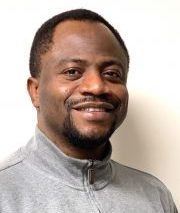 biomedical and food safety-related research. Nwabor praises Syracuse University’s laboratory facilities and appreciates the access he has to equipment. “At other universities, we weren’t given the opportunity to use most of the facilities; the technicians did that. At Syracuse, they explain how to use equipment, such as an electron microscope, then they let you use it. I really appreciate getting to use the equipment by myself to get actual hands-on training.”
biomedical and food safety-related research. Nwabor praises Syracuse University’s laboratory facilities and appreciates the access he has to equipment. “At other universities, we weren’t given the opportunity to use most of the facilities; the technicians did that. At Syracuse, they explain how to use equipment, such as an electron microscope, then they let you use it. I really appreciate getting to use the equipment by myself to get actual hands-on training.”
Nwabor is investigating microbial biofilm, communities of microorganisms that adhere to surfaces. Bacterial biofilm formation can result in negative medical issues for humans, such as dental plaque, lung fluids in cystic fibrosis and illnesses such as cholera, tuberculosis and Legionnaire’s disease. He is working to understand the interaction that occurs between surface features and structures in the adhesion process and how biofilm forms. He works in the Biofilm Engineering Lab of Dacheng Ren, associate dean for research and Stevenson Endowed Professor in the College of Engineering and Computer Science.
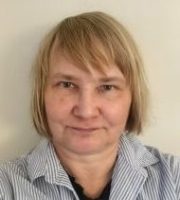
Kira Pronin is a postdoctoral fellow in the Whitman School of Management’s Institute for an Entrepreneurial Society (IES). She and IES Associate Director Roger Koppl are looking at how scientific bodies in the United States, United Kingdom, Italy, Sweden, Uganda and Poland adopt national health and science policy, especially in the context of the COVID pandemic.
Of her experience at Syracuse University, Pronin, a native of Finland, says, “I find Syracuse University and the Whitman School to be very friendly, with a very well-functioning administration, and I really like working with my supervisor. I’ve found this to be a very accepting environment.”
Pronin and Koppl are currently collecting data for a book they plan to co-author on technocracy, scientific research and democracy.
The Office of Postdoctoral Affairs is located in Rooms 226 and 227 of Lyman Hall. The office is staffed by Colleen Burton, senior director of finance and research initiatives, and Claire Perrott, professional development postdoctoral fellow. For more information, email postdocaffairs@syr.edu.
